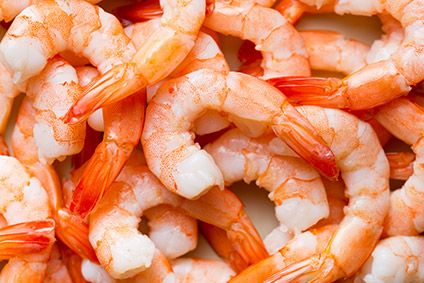
The UK’s Department for International Trade revealed on Friday (4 June) that a deal with the three countries, also encompassing pork and poultry, had been agreed in “principle”. Norway said the free trade agreement was to be presented to its parliament on Friday with the aim to have it signed off at the start of July.
Tariff cuts of as high as 277% have been secured for exporters to Norway of West Country Farmhouse Cheddar, Orkney Scottish Island Cheddar, Traditional Welsh Caerphilly, and Yorkshire Wensleydale cheese. Tariff reductions and quotas have also been agreed on shipments of pork and poultry.

Discover B2B Marketing That Performs
Combine business intelligence and editorial excellence to reach engaged professionals across 36 leading media platforms.
On imports to the UK, tariffs will be reduced on shrimps, prawns and haddock, potentially supporting 18,000 jobs in the fishing industry in Scotland, East Yorkshire and Northern Lincolnshire, The Department for International Trade said in a statement.
International trade secretary Liz Truss said: “Today’s deal will be a major boost for our trade with Norway, Iceland and Liechtenstein, growing an economic relationship already worth GBP21.6bn (US$30.4bn), while supporting jobs and prosperity in all four nations at home.”
The agreement means British businesses can bid for more government contracts in the three partner countries worth around GBP200m a year.
International trade minister Ranil Jayawardena added: “This deal shows that the United Kingdom will continue to be a trade partner of choice, as we set the global trade agenda in areas like e-commerce and climate change.

US Tariffs are shifting - will you react or anticipate?
Don’t let policy changes catch you off guard. Stay proactive with real-time data and expert analysis.
By GlobalData“More trade and more investment will drive growth and support jobs in every corner of our country.”
UK-produced wines and spirits including Scotch Whisky also feature in the deal and will “now be recognised in Norway and Iceland”. Caps are also expected to be put in place on mobile phone charges for international roaming.
Under the trade deal, skilled UK workers will be permitted to enter the partner countries for business purposes, while qualifications for professional workers such as nurses and lawyers will be recognised in the three countries.
And it “includes the most ambitious commitment to support investment ever secured by the UK in an FTA, enabling investors to appoint preferred candidates for senior management without being limited by nationality and residency criteria”.
Norway’s Prime Minister Erna Solberg said in a separate statement: “This agreement secures Norwegian jobs and facilitates economic growth, and it marks an important step forward in our relationship with the UK after Brexit. The agreement is important for Norwegian and UK industry, as well as for the Norwegian economy and job creation in Norway.”
That statement noted that the UK is Norway’s second most important market after the EU, with Norwegian exporters shipping NOK135bn (US$16.2bn) of goods in 2020, while imports from the UK amounted to NOK42bn.
Norway said the trade deal “is more comprehensive than other free trade agreements” under the European Free Trade Association (EFTA) and covers small- and medium-sized enterprises and digital industries.
It added: “The free trade agreement establishes an important framework for supporting and further developing economic cooperation on trade valued at over NOK500bn. Trade, investments and the close business cooperation between Norway and the UK will promote value creation, employment and innovation in Norway.”
Norway’s foreign affairs minister Ine Eriksen Søreide said the new trade deal does not replace the European Free Trade Association (EEA) agreement inked in 1994 with EU member states and Norway, Iceland and Liechtenstein.
Norway noted: “Prior to the UK’s withdrawal from the EU, the EEA Agreement provided for free movement of goods, services, capital and people between Norway and the UK. No free trade agreement will provide the same access to the UK market. Nor will it dismantle all the trade barriers that have been removed under the EEA Agreement. The free trade agreement does not set out a common set of rules and principles of mutual recognition that facilitate free movement, which is a cornerstone of the EEA Agreement.”





